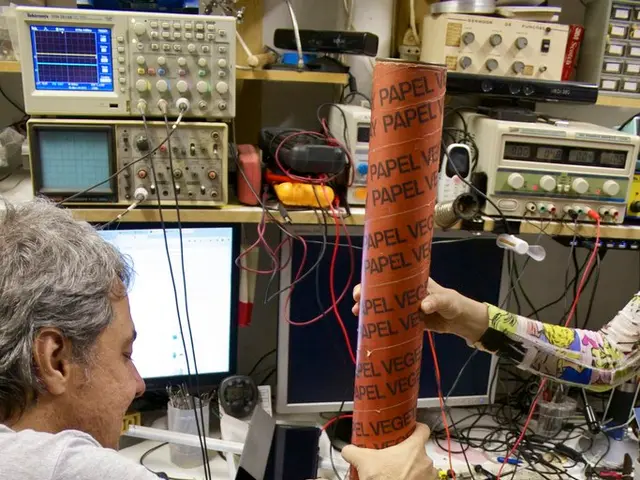Volvo CEO Predicts: "Certain Businesses will Evolve and Persist"
Hakan Samuelsson, a seasoned automotive executive, has returned to Volvo Cars to steer the company through a challenging period and revive a vision formulated earlier. The Swedish automaker is currently in a crucial phase, with a focus on bringing back the EX30 model in higher volumes.
In a strategic move, Volvo is relocating to Belgium, a decision that is expected to play a significant role in achieving this goal. This shift is part of a broader plan by the company to develop a global vehicle architecture for electric and hybrid vehicles, a collaboration with its Chinese parent company, Geely.
Samuelsson predicts that some companies in the automotive industry will adapt and survive, while others will not. To ensure Volvo's success, he plans to follow cost reduction with improvements in sales and marketing, accompanied by a performance-oriented leadership culture.
The CEO is committed to Volvo's electrification course, stating, "Volvo will be stronger if we electrify quickly." This commitment is likely to lead to market consolidation in the industry. Samuelsson remains pragmatic in the face of political uncertainties like tariffs or data protection regulations, focusing on core themes such as data security and internal governance structures.
Samuelsson is concerned about the recent decline in electric vehicle sales, particularly the impact on the EX30 model. He acknowledges that the current challenges are more severe than initially anticipated. However, he remains optimistic about the future, predicting that in ten years, all vehicles will be electric and cheaper.
To buy time, the immediate priority for Volvo is cost reduction. Samuelsson also intends to realign the long-term strategy with a focus on electrification, autonomous driving, and technological leadership projects. He aims to build a suitable successor during his two-year contract.
The growing global influence of Chinese brands like BYD, Xiaomi, and Zeekr poses a direct threat to Volvo. Samuelsson sees the close connection with Geely, Volvo's Chinese parent company, as a valuable advantage.
As a transitional solution, new plug-in hybrids are needed until charging infrastructure is sufficiently expanded. Despite the challenges, Samuelsson is confident that Volvo will emerge stronger, setting the stage for a more electrified and competitive future in the automotive industry.
Read also:
- Transforming Digital Inventories in the Food Industry: A Comprehensive Guide for Food Businesses
- 1. Key Points for August 14: Gathering in Alaska, Immigration Enforcement (ICE), Financial service Zelle, Infowars, and Air Canada Airline Incidents
- Automobile manufacturer IM Motors reveals an extended-range powertrain akin to installing an internal combustion engine in a Tesla Model Y.
- Conflict Erupts Between Musk and Apple Over Apple Store's Neglect of Grok




